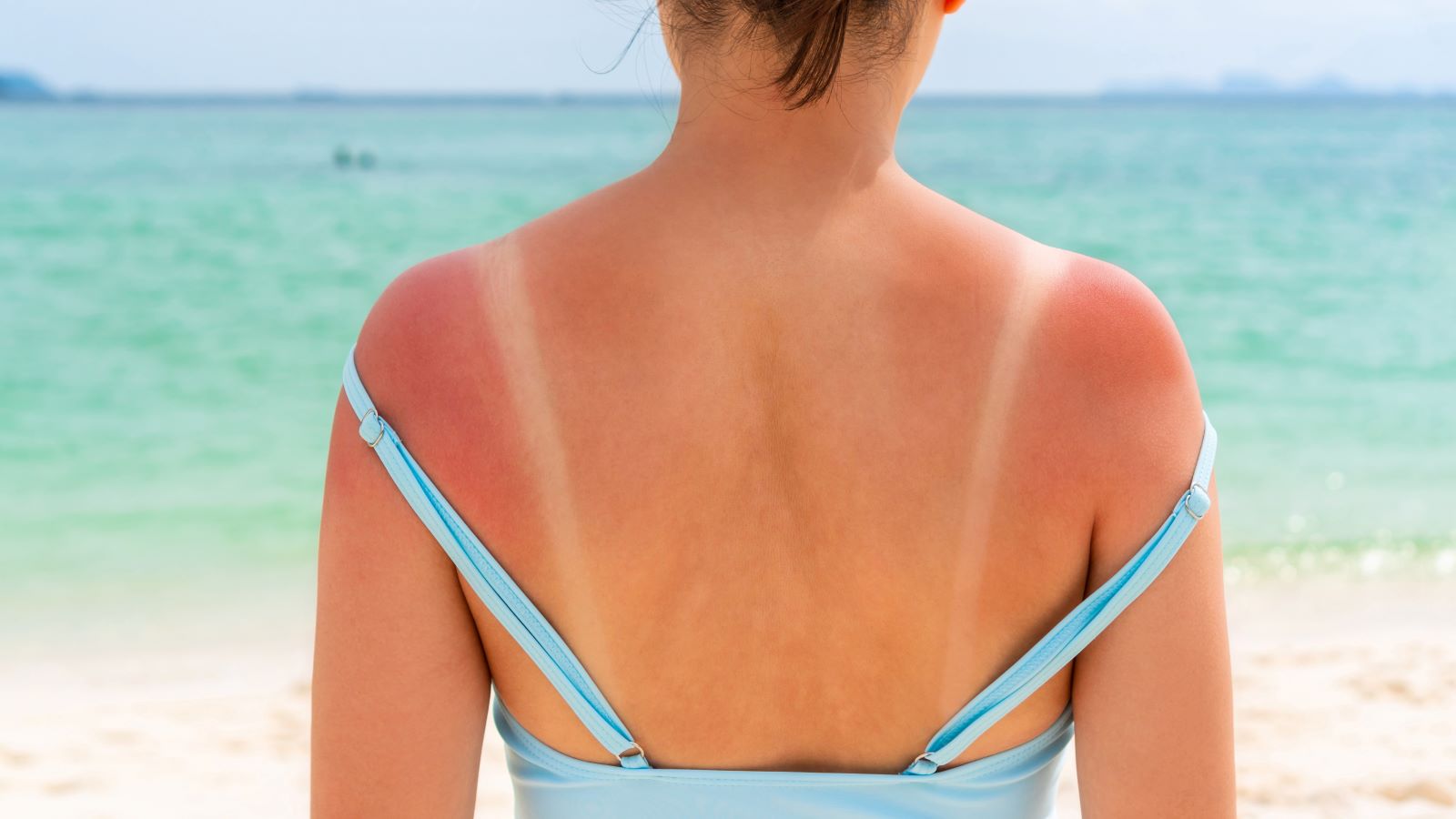Nothing ruins a perfectly good summer day like a sunburn, but the steps you take after can be critical to easing – or worsening – your pain.
Fludiona Naka, MD, a Hartford HealthCare board-certified dermatologist in Farmington, debunks some age-old wisdom about caring for sunburns, and adds tips you might not have thought of.
Connect with a skin cancer specialist
What shouldn’t I do after getting sunburn?
Dr. Naka suggests avoiding these seven strategies after a sunburn:
- Don’t slather on petroleum jelly (Vaseline) or other oil-based ointments. Although we love petroleum jelly for wound healing and post-surgery care, it tends to clog up the pores, preventing heat and sweat from escaping. Therefore, it’s best to avoid using it on sunburned skin, Dr. Naka explains.
- Don’t get dehydrated. The most important thing to do while your body heals is to stay hydrated. Sunburn dilates blood vessels on the skin, drawing moisture away from the rest of the body.
- Don’t pop blisters or peel flakes. Picking at flaking skin or blisters caused by sunburn increases the risk of scarring or hyperpigmentation, dark discoloration that can take months to disappear. In addition, when blisters pop on their own, the top layer of skin collapses back onto lower layers for added protection, Dr. Naka says.
- Don’t exfoliate. You want your skin to heal itself. Plus, many exfoliating products contain ingredients like retinoids or glycolic acid that can damage your burned skin. Avoid drying your skin vigorously, too, Dr. Naka adds. “You don’t want to remove that top layer. You want to leave it intact, so gently pat affected skin dry.”
- Don’t use creams containing alcohol. Alcohol dries the skin and strips it of its natural oils. When skin is burned, exposure to alcohol can decrease its ability to heal, Dr. Naka says.
- Don’t use numbing creams. Creams containing lidocaine or benzocaine can cause dermatitis and irritation, while not really easing your pain.
- Don’t use chemical-based sunscreen. Sunscreen helps you avoid more burn, but chemical sunscreens can be irritating and offer less protection. Instead, choose mineral-based products containing zinc oxide or titanium dioxide, which sit on top of the skin and reflect the sun’s rays, she says.
> Related: Your Summertime Guide to Preventing and Detecting Skin Cancer
What can help me through a sunburn?
Dr. Naka offers these five tips to ease the pain of a sunburn and leave your skin healthy once it fades:
- Take an anti-inflammatory within one hour. Over-the-counter ibuprofen can reduce skin inflammation and help with any fatigue and chills you might feel later, Dr. Naka notes.
- Wear loose clothing. You won’t want anything rubbing against the burned skin, so choose items that fit loosely but are not see-through to minimize further sun exposure.
- Load up on moisturizer. Your skin needs extra attention and frequent applications of gentle, fragrance-free moisturizer. Dr. Naka says using aloe or soy-based products can ease sunburn’s sting with their anti-inflammatory properties.
- Take more baths or showers. Baths and showers using lukewarm water help keep your skin hydrated. Towel dry gently, then add moisturizer while your skin is still damp to trap in the water from your bath.
- Try corticosteroid cream. Over-the-counter hydrocortisone 1% cream can also help reduce swelling and redness, and keeping it in the fridge can add a cooling sensation.
“People with regular exposure to sun, even when protected, should have regular skin checks with a dermatologist who can spot any potential problems early enough to treat effectively,” Dr. Naka says.



